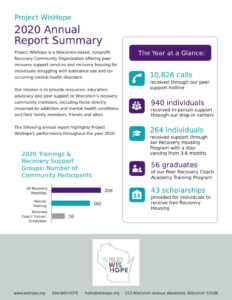Over a span of 20 years, technology has revolutionized our economy, communication, socialization, and more. Coping with recovery from alcohol and/or substance use disorder in the midst of recent progress in digital communications increases the accessibility of resources, while simultaneously adding previously non-existent distractions. Innovations such as mobile healthcare, social media, and streaming services fail to improve one’s mental health, as studies continue to find correlations between depression and screen time. The give-and-take of technology’s benefits and setbacks might never be fully understood, as the studies examining technology addiction remain relatively new and inconclusive. Still, technology’s place in society has been carved out, and learning how the landscape of digital engagement affects recovery — for better or for worse — is essential for anyone who is both online and sober.
HOW TECHNOLOGY HELPS
Internet communications offer the potential to connect mental health resources with coping individuals. Digital intervention has seen immense boosts in usage and efficacy. According to a 2018 study published in the Indian Journal of Psychiatry, virtual therapeutic software and telepsychiatry have made great strides in diminishing alcohol and substance abuse relapse rates. In addition to virtual interventions and smartphone-compatible addiction management apps, many users augment their recovery with software developed to assist with sobriety optimization through data sensors and machine learning.
Visualizing mental healthcare from the convenience of home or the workplace creates significant opportunities for depressed individuals in recovery. Depression often interferes with one’s desire to consult with trained professionals, stifling those who may feel self-pity and helplessness. Some depressed individuals battle fatigue on a daily basis. With virtual intervention and/or treatment, individuals who are less inclined to physically check into a rehab clinic, doctor’s appointment, or therapy session might benefit from a virtual appointment. Connecting with trained professionals often represents a turning point in one’s life, and this includes addiction recovery. The immediacy of virtual mental wellness via therapeutic software alters the perception of seeking out intervention. Downloading a mental health app to your phone or laptop renders the act of mindfulness right alongside more commonplace activities like checking email, weather, and social media.
HOW TECHNOLOGY HURTS
Internet-driven recovery runs the risk of excluding specific demographics of users who might benefit from online resources. Many do not have the budget for Wi-Fi, shelter, or live-in locations with limited internet access. Although online services may extend inclusivity to those unable to attend specific locations, they still require smart devices as well as internet access. Particularly within lower-class income demographics, the prospect of maintaining online resources is not as realistic as it is for those with more disposable income. This method of recovery also raises difficulties for those without permanent shelter, along with individuals who lack the skills required to interface with modern technology.
Furthermore, the issues of data security and privacy can alter the results and usefulness of therapy. Remaining anonymous while making a treatment call can be a key element for many. Maintaining the trust of participants establishes a sense of freedom from judgment as individuals take their crucial first steps towards recovery. Asking users to place their vulnerability in a website or application may lead to under or over-exaggerated answers to critical intake questions.
The distancing created by online communications might also reduce the degree to which therapy can apply an empathetic, human element to recovery. Transmitting data from a user to a data storage system opens the door to predatory data mining for marketing. Even as the intent of virtual care and intervention aims to transparently provide care, the fact remains that we live in a time when data breaches occur with regularity. The very nature of recovery demands trust and vulnerability from all parties. Any software — no matter how carefully and thoroughly designed — faces ethical health privacy concerns.
TRADING ONE ADDICTION FOR ANOTHER
Technology addiction is in the early stages of medical classification, but even in its infancy, early studies have hinted that internet use may replace the role of alcohol or substances for individuals seeking mental health treatment. One in five subjects seeking treatment for psychiatry problems displayed signs of addictive tendencies directed towards their mobile phone — 16% were found to be using the internet as a means of escaping the anguish of emotional coping during treatment. While the use of internet treatment can expand the reach of mental healthcare, the form by which this care occurs might actually be a trigger for addiction, thereby replacing one addictive outlet for another.
The field of addiction recovery will inevitably evolve as society continues to change. The benefits of utilizing technology-based treatments are encouraging and exciting for those in recovery and providers alike. However, we all need to weigh the power of the internet within our society. Remember that the strength to overcome addiction can be assisted by external resources, but the connection with internal empowerment ultimately nurtures and restores all other behavior.
Technology brings human civilization closer together while isolating us at the same time. Our reliance on social media has proven essential throughout the pandemic, but those coping with addiction to alcohol and/or substances may be more likely to develop an addictive relationship with technology as well. Monitoring screen time and deleting time-wasting apps can help with fortifying mental health through the virtual age. Contrarily, the benefits of virtual therapy and mindfulness notification software present unique opportunities for tech users with use disorder to empower their recovery. Everyone’s relationship with technology interplays with their particular manifestation of addiction. So knowing what tools are out there, along with the risks, can offer new paths forward. At WisHope, we understand that the road to recovery is a life-lasting pursuit, and we aim to provide you the tools and resources to do this, long after your stay at our treatment facilities or recovery homes. Don’t wait to get help — call us today at (844) 947-4673.


